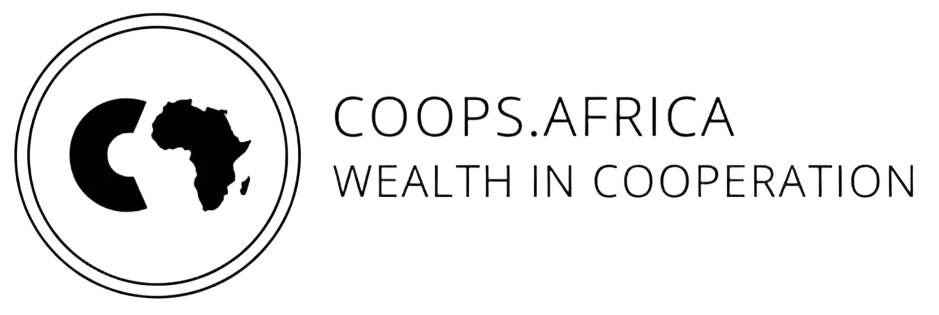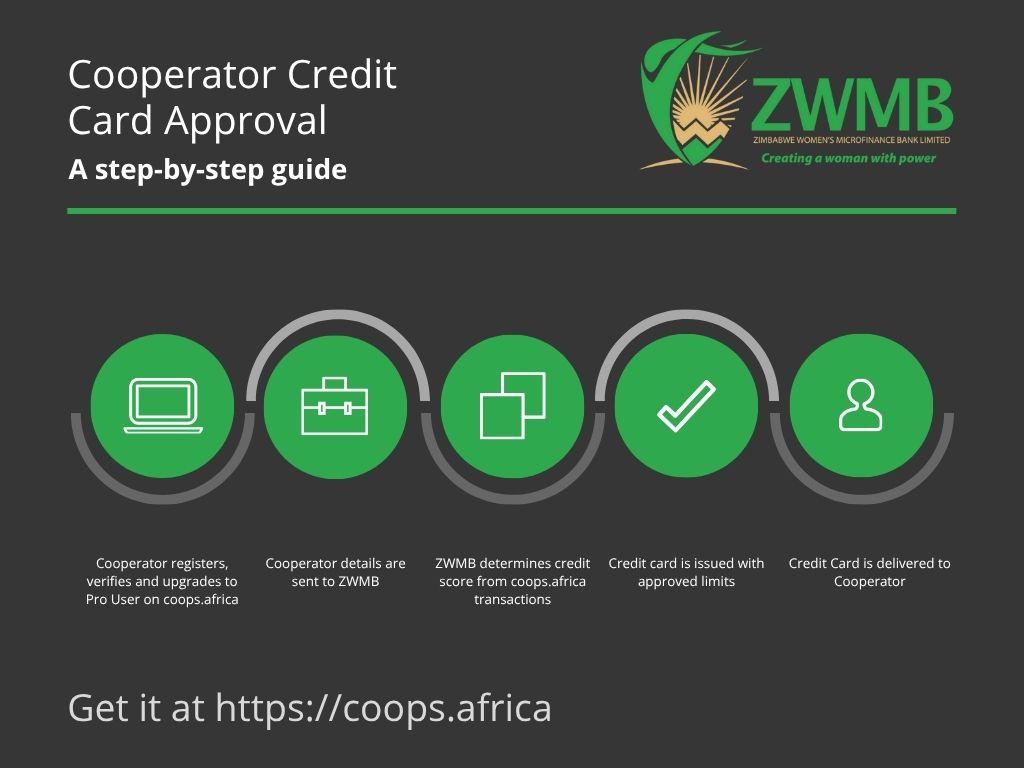Strong Co-operatives Are Built on Clear Roles
Africa’s future is being shaped not just by governments and corporations, but by ordinary people coming together — pooling resources, sharing risks, and building something greater than themselves. That is the spirit of co-operation. But co-operation is not chaos. It demands order, structure, and clarity. And one of the most important foundations of any successful co-operative is a clear understanding of roles and responsibilities.
When everyone knows what is expected of them — and equally important, what is not — the co-operative thrives. But when roles are unclear, misunderstood, or ignored, even the best intentions can lead to dysfunction.
The Board: Custodians of Purpose
The board of directors is not there to run the co-operative on a day-to-day basis. It exists to govern, not to manage. The board acts on behalf of the members to preserve the co-operative’s mission, guide its long-term direction, and protect its values. That means setting policies, making key financial decisions, approving budgets, and holding the general manager accountable. The board must stay out of operational details and focus on governance. Their strength lies in vision and oversight, not in micromanagement.
The Manager: Translating Vision into Action
Once the board sets direction, the manager and their team are responsible for turning that vision into daily reality. From managing member services to maintaining inventory, preparing reports, and supervising staff, the manager ensures that the co-operative functions as a business. Good managers are leaders in their own right — they do not wait for instructions on every detail but understand how to work within the board’s guidance to deliver results. They manage people, systems, and relationships while keeping communication open with the board.
The Supervisory Committee: The Voice of Integrity
In many co-operatives, a supervisory or audit committee plays an independent role in checking compliance, finances, and adherence to the rules. This committee must have the freedom and courage to raise the alarm when something is wrong — even if it’s uncomfortable. Their reports protect the interests of all members. They are the guardians of integrity and financial honesty, ensuring the board and management act within the co-operative’s agreed framework.
The Members: Owners, Watchdogs, and Builders
Members are not just customers. They are co-owners. They are the lifeblood of the co-operative. Yet too often, members remain passive, unaware of their power. A strong co-operative encourages active membership — members who attend meetings, vote in elections, ask questions, challenge poor leadership, and even serve in governance when called upon.
Without active members, democracy dies. Leadership loses its way. Accountability disappears. When members show up and speak out, they strengthen the very foundation of the co-operative.
What Happens When Roles Are Not Respected?
When board members begin giving instructions to junior staff, or when managers make decisions that belong to the board, problems arise. Conflict grows. Decisions get delayed. Trust erodes. The co-operative stalls or even collapses. It’s like a football team where every player chases the ball — nobody is guarding the goalpost, nobody is passing. It becomes chaos.
Co-ops are built to function like an orchestra — different instruments playing in harmony, each with a clear part. When each role is respected, the music is beautiful. When roles are confused, it becomes noise.
The Call: Let Us Build Accountable Co-operatives
What we need across Africa today are co-operatives with discipline, structure, and shared responsibility. Co-operatives that don’t just promise empowerment but practice good governance. Where the board leads, the manager manages, and members are actively engaged. This requires training. It requires dialogue. But most of all, it requires commitment to the co-operative spirit.
Let us each ask ourselves: Do I understand my role?, Do I respect the boundaries of others?, Am I holding myself accountable — or waiting for others to lead?
Conclusion: The Future Belongs to Co-ops That Work
The future of African development lies in communities that organize, produce, and trade together — in unity. But unity requires order. It requires trust. And trust begins with clear roles.
If we want to see stronger, more resilient co-operatives in Africa — from SACCOs in rural villages to industrial worker co-ops in cities — we must go back to the basics.
Let us get our roles right. Let us co-operate with purpose.
Thank you.
Africa’s future is being shaped not just by governments and corporations, but by ordinary people coming together — pooling resources, sharing risks, and building something greater than themselves. That is the spirit of co-operation. But co-operation is not chaos. It demands order, structure, and clarity. And one of the most important foundations of any successful co-operative is a clear understanding of roles and responsibilities.
When everyone knows what is expected of them — and equally important, what is not — the co-operative thrives. But when roles are unclear, misunderstood, or ignored, even the best intentions can lead to dysfunction.
The Board: Custodians of Purpose
The board of directors is not there to run the co-operative on a day-to-day basis. It exists to govern, not to manage. The board acts on behalf of the members to preserve the co-operative’s mission, guide its long-term direction, and protect its values. That means setting policies, making key financial decisions, approving budgets, and holding the general manager accountable. The board must stay out of operational details and focus on governance. Their strength lies in vision and oversight, not in micromanagement.
The Manager: Translating Vision into Action
Once the board sets direction, the manager and their team are responsible for turning that vision into daily reality. From managing member services to maintaining inventory, preparing reports, and supervising staff, the manager ensures that the co-operative functions as a business. Good managers are leaders in their own right — they do not wait for instructions on every detail but understand how to work within the board’s guidance to deliver results. They manage people, systems, and relationships while keeping communication open with the board.
The Supervisory Committee: The Voice of Integrity
In many co-operatives, a supervisory or audit committee plays an independent role in checking compliance, finances, and adherence to the rules. This committee must have the freedom and courage to raise the alarm when something is wrong — even if it’s uncomfortable. Their reports protect the interests of all members. They are the guardians of integrity and financial honesty, ensuring the board and management act within the co-operative’s agreed framework.
The Members: Owners, Watchdogs, and Builders
Members are not just customers. They are co-owners. They are the lifeblood of the co-operative. Yet too often, members remain passive, unaware of their power. A strong co-operative encourages active membership — members who attend meetings, vote in elections, ask questions, challenge poor leadership, and even serve in governance when called upon.
Without active members, democracy dies. Leadership loses its way. Accountability disappears. When members show up and speak out, they strengthen the very foundation of the co-operative.
What Happens When Roles Are Not Respected?
When board members begin giving instructions to junior staff, or when managers make decisions that belong to the board, problems arise. Conflict grows. Decisions get delayed. Trust erodes. The co-operative stalls or even collapses. It’s like a football team where every player chases the ball — nobody is guarding the goalpost, nobody is passing. It becomes chaos.
Co-ops are built to function like an orchestra — different instruments playing in harmony, each with a clear part. When each role is respected, the music is beautiful. When roles are confused, it becomes noise.
The Call: Let Us Build Accountable Co-operatives
What we need across Africa today are co-operatives with discipline, structure, and shared responsibility. Co-operatives that don’t just promise empowerment but practice good governance. Where the board leads, the manager manages, and members are actively engaged. This requires training. It requires dialogue. But most of all, it requires commitment to the co-operative spirit.
Let us each ask ourselves: Do I understand my role?, Do I respect the boundaries of others?, Am I holding myself accountable — or waiting for others to lead?
Conclusion: The Future Belongs to Co-ops That Work
The future of African development lies in communities that organize, produce, and trade together — in unity. But unity requires order. It requires trust. And trust begins with clear roles.
If we want to see stronger, more resilient co-operatives in Africa — from SACCOs in rural villages to industrial worker co-ops in cities — we must go back to the basics.
Let us get our roles right. Let us co-operate with purpose.
Thank you.
Strong Co-operatives Are Built on Clear Roles
Africa’s future is being shaped not just by governments and corporations, but by ordinary people coming together — pooling resources, sharing risks, and building something greater than themselves. That is the spirit of co-operation. But co-operation is not chaos. It demands order, structure, and clarity. And one of the most important foundations of any successful co-operative is a clear understanding of roles and responsibilities.
When everyone knows what is expected of them — and equally important, what is not — the co-operative thrives. But when roles are unclear, misunderstood, or ignored, even the best intentions can lead to dysfunction.
The Board: Custodians of Purpose
The board of directors is not there to run the co-operative on a day-to-day basis. It exists to govern, not to manage. The board acts on behalf of the members to preserve the co-operative’s mission, guide its long-term direction, and protect its values. That means setting policies, making key financial decisions, approving budgets, and holding the general manager accountable. The board must stay out of operational details and focus on governance. Their strength lies in vision and oversight, not in micromanagement.
The Manager: Translating Vision into Action
Once the board sets direction, the manager and their team are responsible for turning that vision into daily reality. From managing member services to maintaining inventory, preparing reports, and supervising staff, the manager ensures that the co-operative functions as a business. Good managers are leaders in their own right — they do not wait for instructions on every detail but understand how to work within the board’s guidance to deliver results. They manage people, systems, and relationships while keeping communication open with the board.
The Supervisory Committee: The Voice of Integrity
In many co-operatives, a supervisory or audit committee plays an independent role in checking compliance, finances, and adherence to the rules. This committee must have the freedom and courage to raise the alarm when something is wrong — even if it’s uncomfortable. Their reports protect the interests of all members. They are the guardians of integrity and financial honesty, ensuring the board and management act within the co-operative’s agreed framework.
The Members: Owners, Watchdogs, and Builders
Members are not just customers. They are co-owners. They are the lifeblood of the co-operative. Yet too often, members remain passive, unaware of their power. A strong co-operative encourages active membership — members who attend meetings, vote in elections, ask questions, challenge poor leadership, and even serve in governance when called upon.
Without active members, democracy dies. Leadership loses its way. Accountability disappears. When members show up and speak out, they strengthen the very foundation of the co-operative.
What Happens When Roles Are Not Respected?
When board members begin giving instructions to junior staff, or when managers make decisions that belong to the board, problems arise. Conflict grows. Decisions get delayed. Trust erodes. The co-operative stalls or even collapses. It’s like a football team where every player chases the ball — nobody is guarding the goalpost, nobody is passing. It becomes chaos.
Co-ops are built to function like an orchestra — different instruments playing in harmony, each with a clear part. When each role is respected, the music is beautiful. When roles are confused, it becomes noise.
The Call: Let Us Build Accountable Co-operatives
What we need across Africa today are co-operatives with discipline, structure, and shared responsibility. Co-operatives that don’t just promise empowerment but practice good governance. Where the board leads, the manager manages, and members are actively engaged. This requires training. It requires dialogue. But most of all, it requires commitment to the co-operative spirit.
Let us each ask ourselves: Do I understand my role?, Do I respect the boundaries of others?, Am I holding myself accountable — or waiting for others to lead?
Conclusion: The Future Belongs to Co-ops That Work
The future of African development lies in communities that organize, produce, and trade together — in unity. But unity requires order. It requires trust. And trust begins with clear roles.
If we want to see stronger, more resilient co-operatives in Africa — from SACCOs in rural villages to industrial worker co-ops in cities — we must go back to the basics.
Let us get our roles right. Let us co-operate with purpose.
Thank you.
0 Commentaires
0 Parts
506 Vue
0 Aperçu




